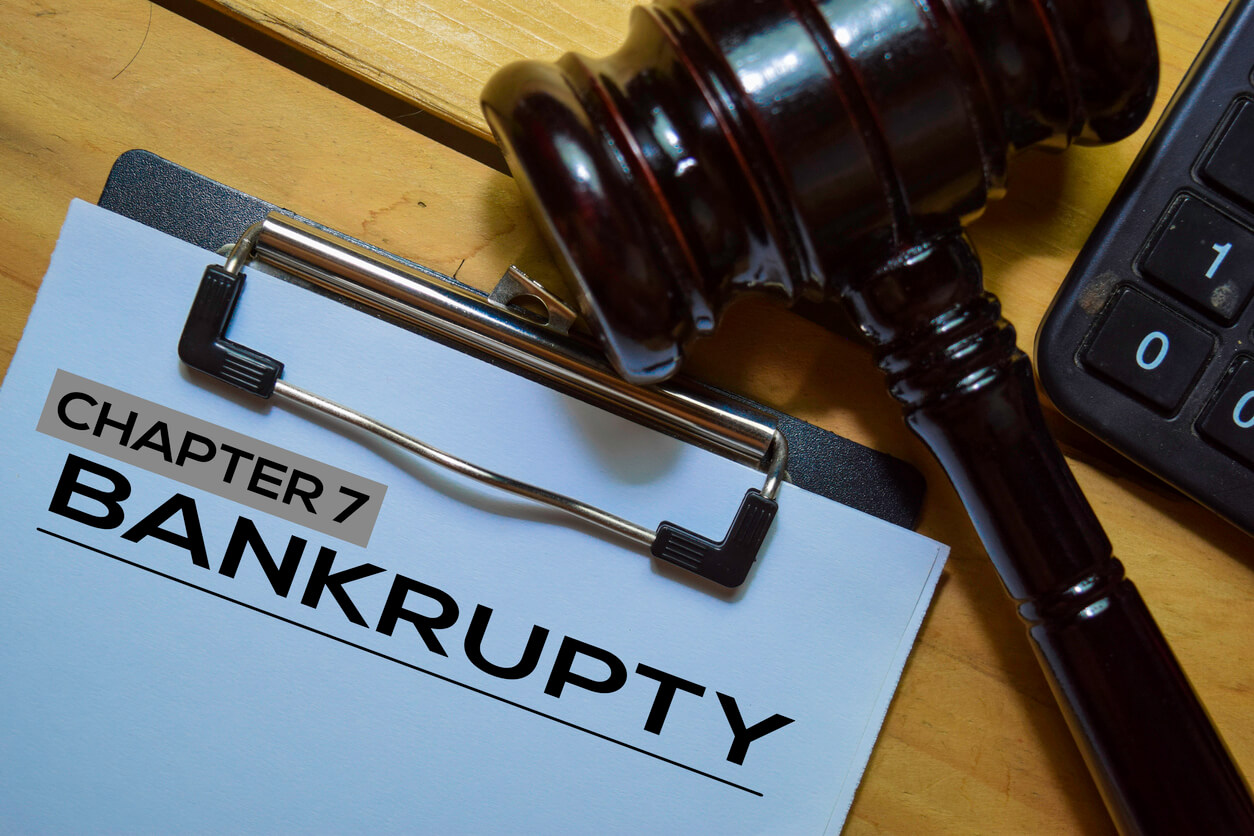Bankruptcy can sound so ominous. Visions of financial ruin and bank repossessions may come to mind. In reality, however, bankruptcy can be a real bright spot in a person’s life and signal the turn towards a bright financial future. For those struggling under what feels like unmanageable debt, bankruptcy can provide the critical relief they have been looking for, but unable to find.
Chapter 7 bankruptcy is often the preferred form of bankruptcy for individual filers. To qualify for Chapter 7 bankruptcy, however, a filer must meet strict income limitation requirements. More specifically, the debt holder must pass the “means” test which essentially calculates whether he or she has enough disposable income each month to manage debt repayment on a Chapter 13 repayment plan. If a debtor has enough disposable income, then he or she will not qualify for Chapter 7 bankruptcy.
While those who file Chapter 7 bankruptcy face the possibility that they will have to exchange discharge of debt for giving up non-exempt property of a certain value for the bankruptcy trustee to sell off to satisfy creditors, this is not very common. The list of bankruptcy exempt property can be pretty substantial and enough that a Chapter 7 bankruptcy will not have to see assets sold off. Even if some property will have to be sold off in Chapter 7 bankruptcy, the benefits can far outweigh the negatives.
Benefits of Chapter 7 Bankruptcy
Those who successfully file Chapter 7 bankruptcy stand to gain a legitimately fresh financial start. The amount of qualifying debt that can be discharged in Chapter 7 bankruptcy can seem staggering. Yes, some types of debt will not be dischargeable in bankruptcy, including student loans (with limited exceptions), as well as child support and alimony. There are, however, a multitude of prominent debts many people carry that are dischargeable in bankruptcy. For instance, medical bills are dischargeable in bankruptcy. Medical debt tops the list of reasons why people end up filing for bankruptcy in the first place.
Not only is there a wide variety of debt that can be discharged in Chapter 7 bankruptcy, but there is also no limit on the amount of debt that can be discharged. Chapter 7 bankruptcy rules do not place a limit on the amount of debt a filer is allowed to have discharged. This is different from Chapter 13 bankruptcy rules which can render a debtor ineligible for bankruptcy relief if outstanding secured or unsecured debts fall above a certain limit.
Those who go through Chapter 7 bankruptcy are also granted the added benefit that they will be able to keep income generated in the future. Assets acquired by a debtor after filing for Chapter 7 bankruptcy will not be included in the bankruptcy estate, except certain property acquired within 18 days after filing for bankruptcy. Additionally, Chapter 7 debtors will not be subjected to a court-approved repayment plan like those in Chapter 13 bankruptcy.
Tax Attorneys
Are you interested in learning more about what Chapter 7 bankruptcy can do for you? The attorneys at Regal Tax & Law Group, P.C. are available to you to discuss your options. Contact us today.

